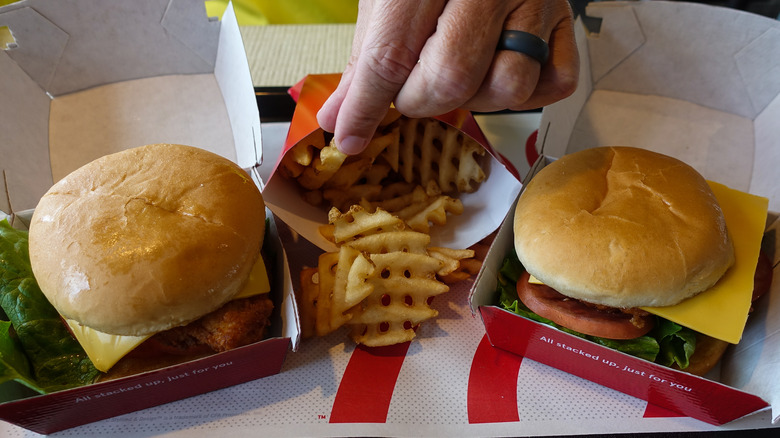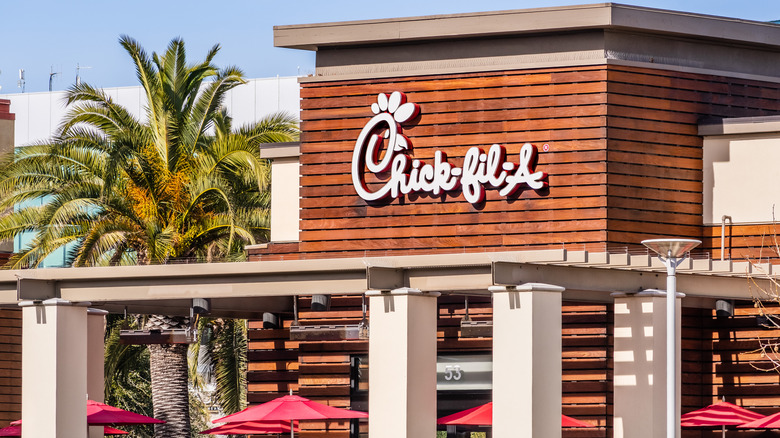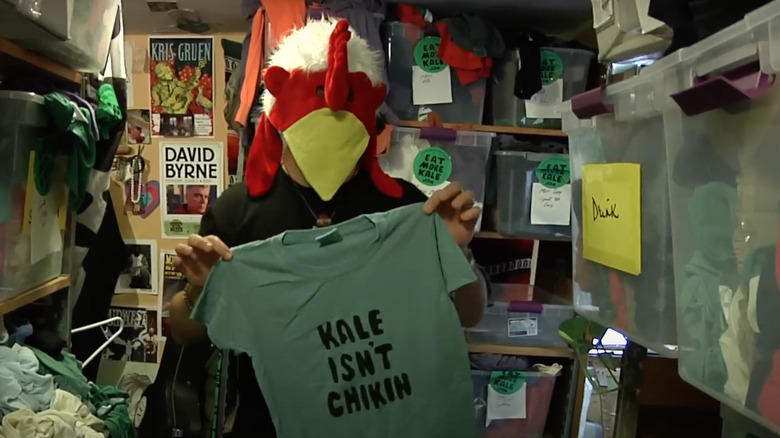The US States That Don't Have A Chick-Fil-A
If you break down the chain restaurant eating habits of the American population, one name will quickly begin to stand out. If you take a chain's total visitor count in a given state and separate that figure by the number of locations in that state, Chick-fil-A immediately emerges as a fast food favorite. When you delve into the realm of consumer satisfaction, Chick-fil-A is dominating the fast food scene. It's easy to understand why the chain was the favorite fast food of many states during Coronavirus.
However, some segments of the American population will have a harder time getting their hands on a Chick-fil-A sandwich than others. Of the 50 U.S. states, only two have no Chick-fil-A restaurants: Vermont and Alaska. These two states are the second and third least populous U.S. states, respectively. (The state with the smallest population, Wyoming, only has one Chick-fil-A location.) Population is partially responsible for Chick-fil-A's absence, but there are also other factors at play. Some suggest that Vermont doesn't have a Chick-fil-A because of a 2014 legal dispute that the state had with the restaurant chain.
Chick-fil-A outside of the mainland US
Until recently, there was a third U.S. state that didn't have a Chick-fil-A. Though there was talk of the chain expanding in 2018, it wasn't until 2022 that its succulent fried chicken sandwich was sold in Hawaii. The archipelago is now home to four Chick-fil-A locations.
However, if citizens of Alaska — the other noncontiguous state — hope to contend with the cold by biting into a Chick-fil-A sandwich, they're out of luck. Fast food is considerably more expensive in Alaska. These statewide price spikes are easy to explain when you realize that Alaska is a food desert. Nearly 90% of the state's food supply is processed through a single shipping port. Alaska has limited natural resources, and transporting goods across the region's rugged terrain is a difficult endeavor. It's easy to see how this might make a chicken sandwich more costly and why the chain hasn't attempted to expand into the state.
Vermont's fight with Chick-fil-A
Vermont — like Alaska and other states that are only home to a few Chick-fil-A locations — has a very small population. However, in the 2010s, there was a legal battle between a Vermont-based artist and the fast food chain. Every Vermonter, from the general public to the state's highest officials, allied with the artist, and this lawsuit could be why a Chick-fil-A restaurant still hasn't opened its doors in Vermont.
Artist Robert Muller-Moore created "Eat More Kale" artwork for a friend of his in an attempt to bolster Vermont's agriculture industry. Chick-fil-A representatives felt this was too close to the chain's "Eat Mor Chikin" slogan and sued Muller-Moore for copyright infringement. After the ensuing battle, during which even the governor of Vermont publicly stood on the side of the artist, Muller-Moore's slogan was finally patented in 2014. Chick-fil-A began selling a kale salad with a maple dressing two years later, which Muller-Moore and many others felt was an attack on Vermont – the biggest producer of maple syrup in the country – in response to the lawsuit. Because of this legal trouble, if Chick-fil-A wants to become a 50-state chain, Vermont may be the toughest market to crack.


